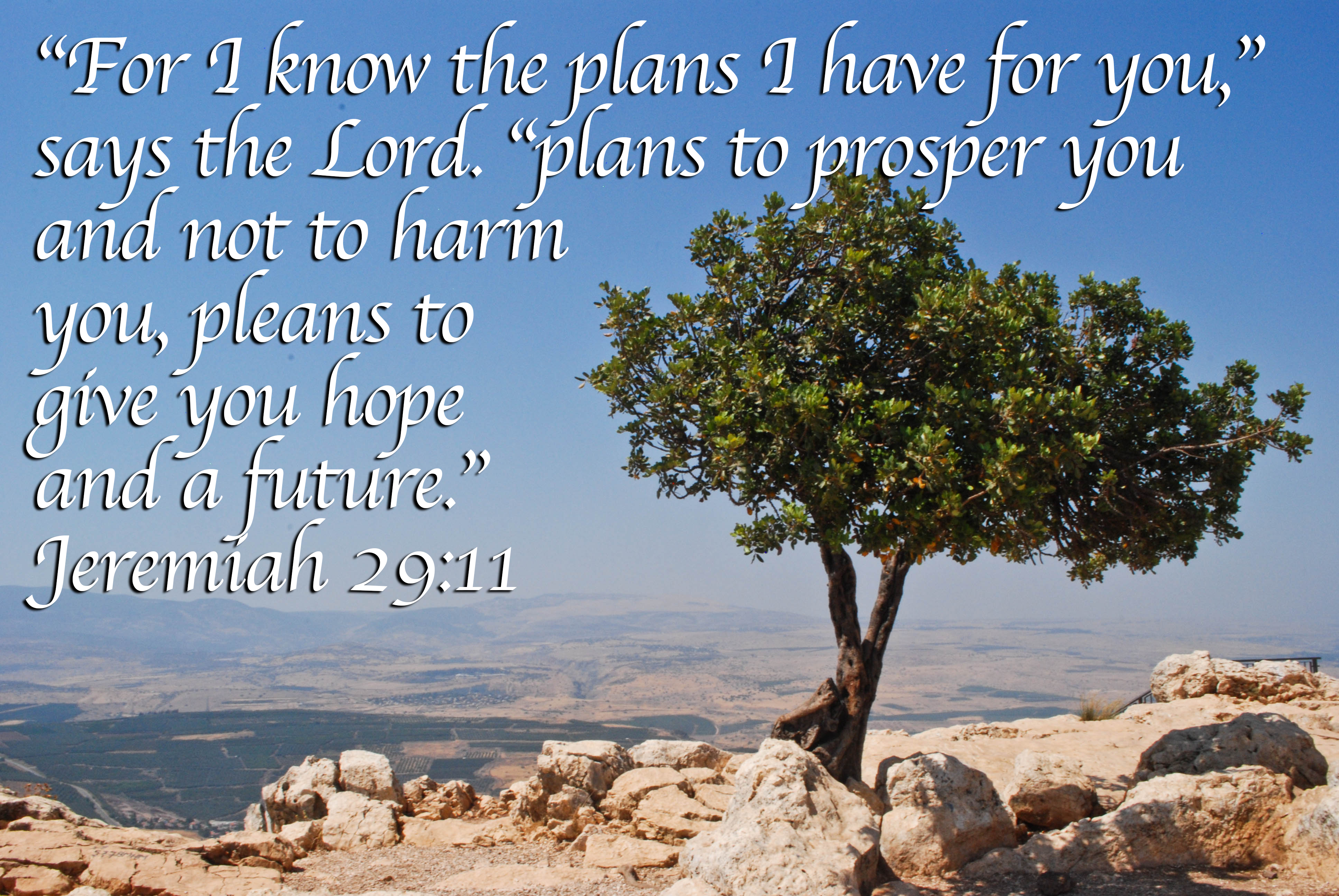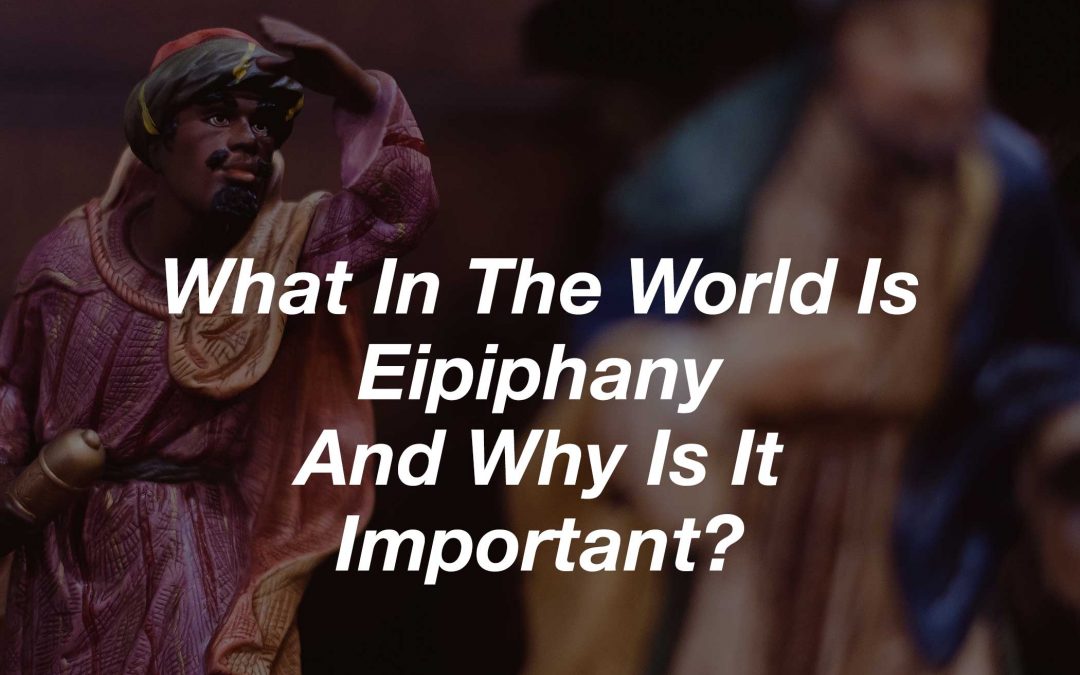Folk Theology: Part 5 – Jeremiah 29:11

Original Verse: Jeremiah 29:11
“For I know the plans I have for you,” declares the LORD, “plans to prosper you and not to harm you, plans to give you a hope and a future.”
The Issue
I know Sunday School kids who can quote this verse backwards and forwards. They know Jeremiah 29:11, but the problem is that they don’t know Jeremiah 29. I know grown adults who get furious with me when I say this is one of the most taken out of context verses in all of Scripture. As you’ll see, I don’t think this verse is talking to directly to anyone who reads it, but I do believe this verse has value for today.
The Verse in Context
Every theology/ministry major has a specific class they have to take before they can graduate. This class is called Hermeneutics (her-men-ou-tics). I become increasingly upset with each passing day because so many pastors forget these fundamental principles for proper exegesis. Not sure what exegesis is? It is when you read the scriptures, understand the context for which it was written, think about it critically and take out of it. Many pastors and church congregants today are doing what is called Eisegesis. You are reading into the text what you want out of it from your own presuppositions and making your own conclusion based on your own experience and your own theology. This is a flawed and perverted way of doing proper biblical study (One I am just as guilty of doing in my past).
Hermeneutics and Exegesis, at their basic level, is about understanding the context of a specific scripture. As the book Grasping God’s Word would say, it’s all about bridging the gap and understanding scripture in how the original authors or hearers would have understood it and bridging it to fit our understanding. So how do we understand Jeremiah 29:11?
Who Was Jeremiah And Why Was This Written?
Jeremiah was a prophet to Judah during the time of the Israel exile in Assyria and before/during the Judah/Jerusalem exile in Babylon. Right before 29 in chapter 27, Jeremiah gives a Word that people should respect Nebuchadnezzar king of Babylon and his authority because he is the “Lord’s servant.” This is interesting in and of itself. This was a pagan king being used by God for his purposes. Interesting, but moving on (You can think and research that for yourself). This particular chapter (Chp. 29) is a letter to the Jerusalem exiles living in Babylon. If you haven’t read the whole letter, I would encourage you to do so now.
Jeremiah 29 is a letter of encouragement and exhortation for the exiles to settle down in Babylon. It says, “Build houses and settle down; plant gardens and eat what they produce. Marry and have sons and daughters…” Jeremiah expected this exile to last a while so he encouraged them to get comfortable there. Furthermore, he encourages them to “seek peace and prosperity of the city which I have carried you into exile.” This is quite fascinating. Most people think of Babylon today as a pretty “YOLO” kind of city (I’m a Youth Pastor, can you blame me for using it?). This city was pagan, sinful and downright ruthless. But Yahweh doesn’t say, “Overtake the city.” He says, “Seek peace and prosperity for the city” (This has a million theological implications for today, but that’s for another blog). Surely this isn’t the God of the Hebrew Bible most people know! Indeed, the more you read the Hebrew Bible the more you see the themes of compassion, love and grace. But that’s also for another blog (Or you can read David Lamb’s God Behaving Badly. It’s one of the best books on understanding God’s character in the Hebrew Bible that I’ve read so far).
Jeremiah 29: 9-13
Just before the famed Jeremiah 29:11 verse in 9-10 Yahweh reminds the people not to listen to false prophets. These are people who have gone out “to deceive” them. According to Jeremiah, Yahweh then says, “After 70 years are completed for Babylon, I will come to you and fulfill my good promise to bring you back to [Jerusalem].”
So now we have our context for Jeremiah 29:11 which you have either read above or have memorized in your heart. Then comes verse 12-13 where Yahweh says, “12Then you will call on me and come and pray to me, and I will listen to you. 13You will seek me and find me when you seek me with all your heart.” I think verse 13 has more timeless implications than verse 11 does given this particular context. Why would I make such a claim? Because it’s giving direction on seeking God. The rewards are simply Jeremiah 29:11. If you don’t do 12-13, more than likely 11 won’t happen (Which was the entire purpose of the exiles). So how can we understand this verse and use it properly?
How Do We Change This?
- Non-Pastors and Non-Theologians
If this is your only verse for this specific theology then you don’t understand proper theology and doctrine. Many heresies have been formed and embraced by people who simply used one verse, grossly out of context, and applied it to their lives (Snake Handlers anyone?). If you believe this is true, then find other scriptures where this is universally true. Once again, the problem with this particular verse is that it’s not “timeless.” It’s for a specific generation of people. This promise has already been fulfilled.
- Pastors and Theologians
If you use this verse in your sermons, please make sure to point out that A) it is out of context or B) this verse is strictly accompanied by verses 12-14 (Because in my own opinion, those verses are more important than verse 11). Make sure your congregation knows that while this may be a general truth, there are other verses that better explain it. Please stop perverting the Word of God and telling people that this promise is for them. It’s not. Or you could just only preach this verse when you’re preaching on Jeremiah 29 as a whole and never use this verse out of context in your sermons. Let’s be honest, a little Hebrew Bible exegetical preaching is much needed in our churches today.
- My Personal Thoughts
Do I generally think this is God’s will for all of His people? Yes, I do. But (And that’s a BIG BUT), I have also read the Bible. I know other scriptures and I know that the ultimate story and plan of God for His people are for the best, even when we don’t always see it. My problem is that too many Prosperity Gospels and too many people who have no biblical training think God will NEVER harm them and if they aren’t “prosperous” they aren’t “holy enough” or they are doing something wrong. That’s just straight up poppycock (I’ve always wanted to use that word).
The Israelites were oppressed by Egypt. They wondered the desert for 40 years. They were later carried off into Exile. When they came back, they were forced to be under Roman Rule. Jesus, Yahweh Incarnate, allowed himself to be put on a cross and die. The apostles were put in prison, beat and eventually almost all martyred. What am I saying? Our view of plan, prosperity and harm are vastly different from the Lord’s. Isaiah 55 says, “For my thoughts are not your thoughts, neither are my ways your ways…” Do I think the Lord wants what is best for His people? Yes, absolutely! Do I think what the people think is best for them is God’s best for them? Absolutely not! Paul was rejected, put in prison, beat and even worse and yet he writes in Romans 8:28, “And we know that in all things God works for the good of those who love him, who have been called according to his purpose.” Being a follower of Jesus doesn’t always mean we will possess the world’s view of prosperity and hope. BUT Yahweh works out everything. You’re going to hurt. You’re going to feel pain. You’re going to be persecuted. BUT Yahweh works out everything. Remember, God’s plan in Jeremiah 29:11 was for an entire nation. Not everything is about YOU. God’s plan is also about His people as a whole.
The End
As I wrap up this series I want to remind you that Folk Theology kills. It kills the real Yahweh and births your own made up idolatrous version of Him. It kills what could mean your real hope and prosperity in Yahweh. It kills other people who don’t know Yahweh or the Messiah Jesus. So before you rattle off some ridiculous theological phrase, think about four things:
- Biblical – Is this Biblical?
- Supported – Is this supported by other scriptures and/or 2,000+ years worth of theological doctrine?
- Original – Is this what the original authors/hearers would have understood?
- Context – What is the original context
(Brian Saves One Christian)
I encourage all of you to take classes on hermeneutics/exegesis (Pastors, if you have the means, please teach these priceless tools to your congregation). If you love Jesus or if you’re just curious about Scripture in general, you and those around you will benefit from your ability to critically examine the Bible.
Thank you all so much for reading these posts. Also a huge thanks to Nick Potts for his incredible contribution to this series, which you can read here. If you have any other theological phrases you think have been taken out of context, write them below. I would still like to examine other phrases in the future. While this was a long post, it is definitely not exhaustive by any means, so let me know if I missed anything.
No Results Found
The page you requested could not be found. Try refining your search, or use the navigation above to locate the post.
Leave A Comment
I’d love to hear your thoughts on this article! Please remember to be kind and respectful. If you didn’t like something, I always welcome constructive criticism. However, any form of hatred, bullying, or racism will not be tolerated.

About The Author
Justin Boothby is a lifelong student who loves to travel, film, write, design websites, and life coach. Most importantly he loves to Pastor in all different kinds of ministry settings. He’s also an avid pizza lover, metalcore listener, and shot glass collector.
Recent Blog Posts

Don’t Look Back: Giving Up Failure For Your Kingdom Purpose
Are you wasting your Kingdom purpose by focusing on past failures? Is Jesus a cruel Messiah? Let’s take a look!

Be The Light Of Jesus (No Matter How Big Or Small Your Influence Is)
Being the Light of Jesus means operating out of the fruits of the Spirit no matter where we are and no matter how many people we influence.

5 Reasons Why Jesus Followers Should Observe The Passover Seder
Did you know communion was founded on the Passover Seder? Jesus used the elements of the Seder to proclaim that He was the Lamb of God.

What In The World Is Epiphany And Why Is It Important?
Epiphany. The “Three Wisemen.” The Christmas Star. All of these words give us radical new meaning through the lens of Jesus.
About The Author

Justin is a lifelong student who loves to speak, travel, film, write, and coach. He has a goal of empowering others to grow closer to Jesus in practical and unique ways. After acquiring two degrees in Practical Theology and then studying in Israel for two years, Justin has a passion to help people read the Bible with a deeper appreciation in its original, ancient context.
M.A. Hebrew University of Jerusalem
M.Div. Regent University
B.S. Southeastern University
